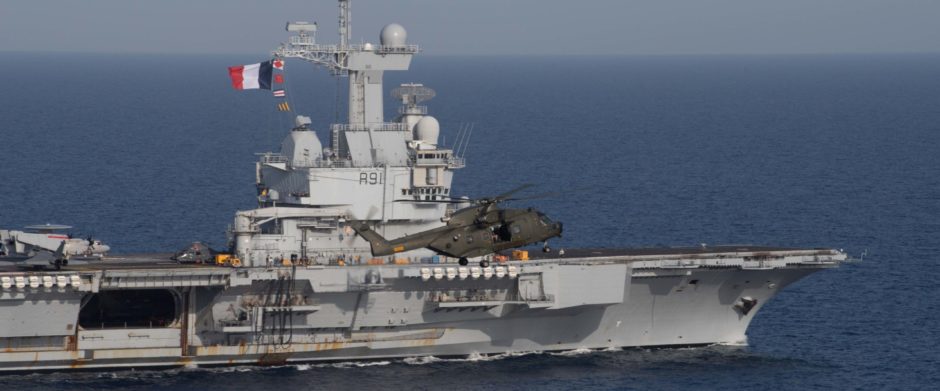The wars of the French Revolution and Empire will be continuously an unequal struggle. French navy is completely disorganized by the revolutionary storm. Nevertheless, the naval history of the wars during this time is interesting because it shows the versatility of seapower. It is clear that the French navy is unable to fight in line with the Royal Navy. The battle of the Nile (Aboukir) and Trafalgar are the peaks of a long series of defeats. Nevertheless, the French navy is able to initiate large operations such as the Bruix campaign in the Mediterranean in 1799 (which will be unsuccessful). Britain has the command of the sea but Admiral Nelson is unable to intercept the convoy of the army of Egypt and the destruction of the French fleet in the mouth of the Nile (Aboukir) battle of will occur after a long chase.
Britain mounts a network of insular positions36, including Corsica for a few months (1794-1796), Minorca from 1798 to 1802, but have to rely first on Spanish and Napolitan alliance. When the Spanish alliance ceases to exist after the San Ildefonso treaty (1796), the Royal Navy, in spite of the weakness of the french navy, is obliged to evacuate the Western Mediterranean due to logistical reasons and this move will prompt the quick withdrawal of Austria from the war.
The Royal Navy returns soon and this record will contribute to her will to keep at any price, after the peace of Amiens (1802), the island of Malta taken in 1800 which will become, with Gibraltar, the cornerstone of British maritime hegemony in the Mediterranean during the XIXth century. In 1815, she will add the Ionian islands with the strategic point of Corfu, so coveted by Napoleon but also by the Russian newcomer with the fleet of Uschakov and Seniavin which operated from the islands for some years until the Tilsitt treaty37.
During the Revolution and the Napoleonic wars, Britain succeeds for the first time in establishing a permanent blockade : close blockade against Brest38 ; distant blockade as preferred by Nelson to allow the escape of the ennemy, preserving the possibility of a decisive battle. The morale and material superiority of the Royal Navy after Trafalgar is so great that the French navy will not even try to to go to sea and remains in her bases. Napoleon builds a lot of warships but it is not truly a navy so great is the lack of morale, training and doctrine. British warships can make a constant harassment of the European coast. After Trafalgar, Britain is able « through her predominant naval strength, to thwart Napoléon’s Continental system in these seas, by encouraging large scale smuggling on the southern fringe of his empire, by blockading French ports in Italy and Dalmatia, interrupting the supply of food and naval stores to them and to French controlled dockyards, while establishing her own bases at Malta and after 1803 at Lissa (modern Vis) and defeating a French force which tried to take it in 1811 and by supporting anti-French guerilla activity in Calabria, Dalmatia and Morea »39. But this action has limited effects. French economy is oriented towards the continent, the budget is supplied by the contributions of the defeated countries ; until 1813, the economic situation of France is fairly good40. The strategy of peripherical actions never obtains decisive results and conjunct operations (South Italy 1806) are as unsuccessful in the Mediterranean as they are elsewhere (Toulon, 1793, is a success, at least a tactical success, only by the virtue of civil war in France).
Seapower played a decisive role in the result but it was unable to create it by itself. As says John B. Hattendorf : « The ministry in London did not design its naval strategy in the Mediterranean to strike a mortal blow at France, but to maintain Britain’s ability to control and to limit French moves, while crippling blows were struck elsewhere« 41. The command of the sea gives to the coalition a great freedom of action and limits the possibilities of the French. It will be decisive in the long term and without it Napoleon would not have been defeated. But it is not accurate to say that Trafalgar was the mortal blow. The collapse of the French Empire occurs a decade later and only after the disaster of the retreat from Russia. The seapower is able to impulse coalitions and to prevent hegemony on the continent only if it can cooperate with land associates against the hegemonic pretendent42. Once again, it must be remembered that seapower is truly effective only when it is part of global power.
Notes:
36 Brian Lavery, « The British Navy and its Bases 1793-1815 » in IIIe Journées franco-britanniques d’histoire de la marine, Français et Anglais en Méditerranée 1789-1930, Vincennes, Service historique de la Marine, 1992.
37 Norman E. Saül, Russia and the Mediterranean 1797-1807, Chicago, Chicago University Press, 1970.
38 A.N. Ryan, « The Royal Navy and the Blockade of Brest 1689-1805 : Theory and Practice », in Martine Acerra, José Merino, Jean Meyer, Les marines de guerre européennes XVIIe-XVIIIe siècles, Paris, Presses de l’Université de Paris-Sorbonne, 1985.
39 Patricia K. Crimmin, « Great Britain and France in the Levant 1793-1827 : from Naval Conflict to Cooperation », in IIe Journées franco-anglaises d’histoire de la Marine, Les empires en guerre et paix, Vincennes, Service historique de la Marine, 1990, p. 79.
40 This point is emphasised by Admiral Castex in Théories stratégiques, Paris, ISC-Économica, 1997, tome I. Same conclusion in François Crouzet, op. cit., p. 237.
41 John B. Hattendorf, « Sea Power as Control : Britain’s Defensive Naval Strategy in the Mediterranean 1793-1815 », in IIIe Journées franco-britanniques d’histoire de la Marine, Français et Anglais en Méditerranée 1793-1830, Vincennes, Service historique de la Marine, 1992, p. 216-217.
42 Michael Howard, « The British Way of Warfare Reconsidered », in Michael Howard, Restraints on War, London, Temple, 1982.





